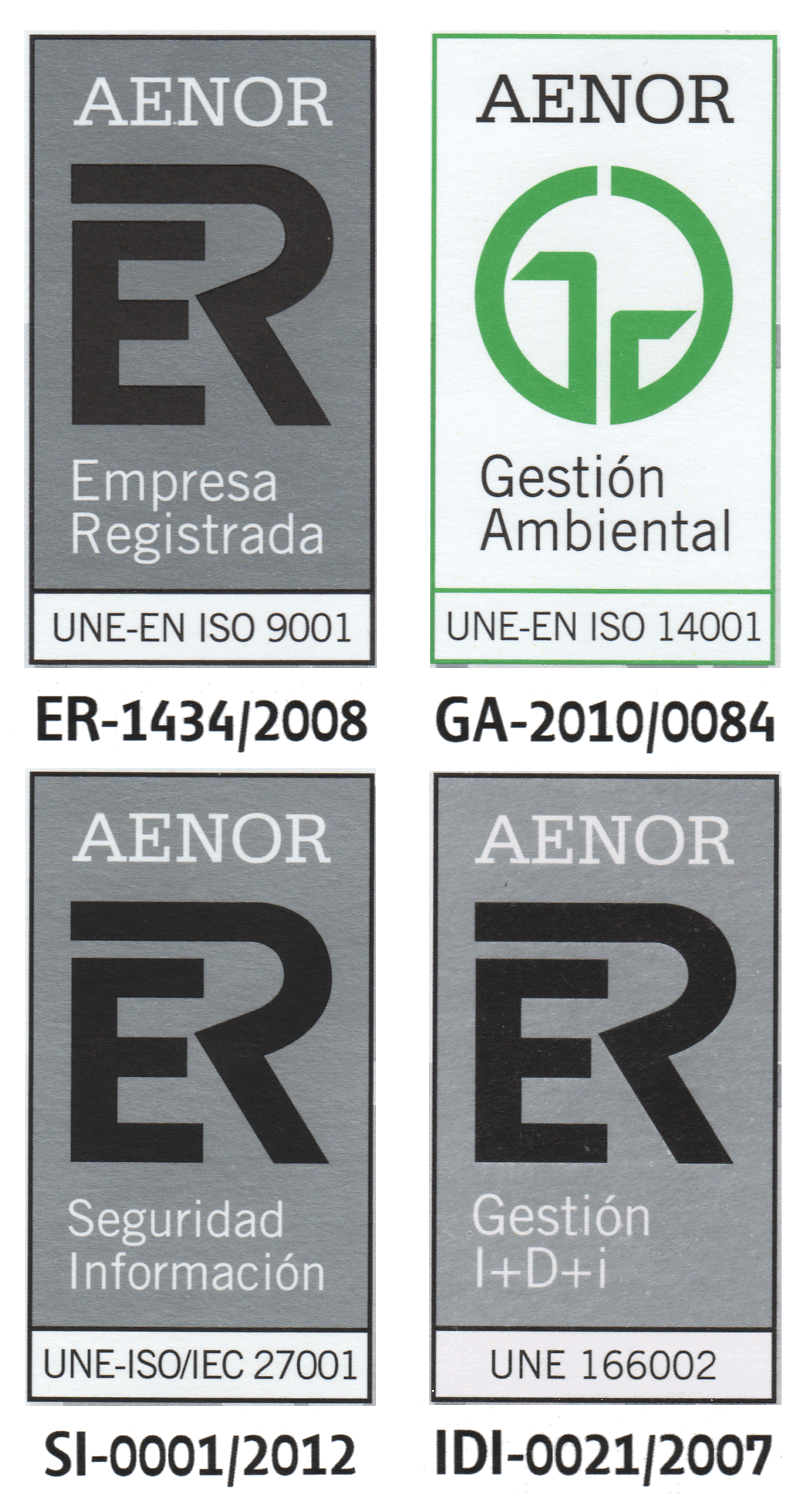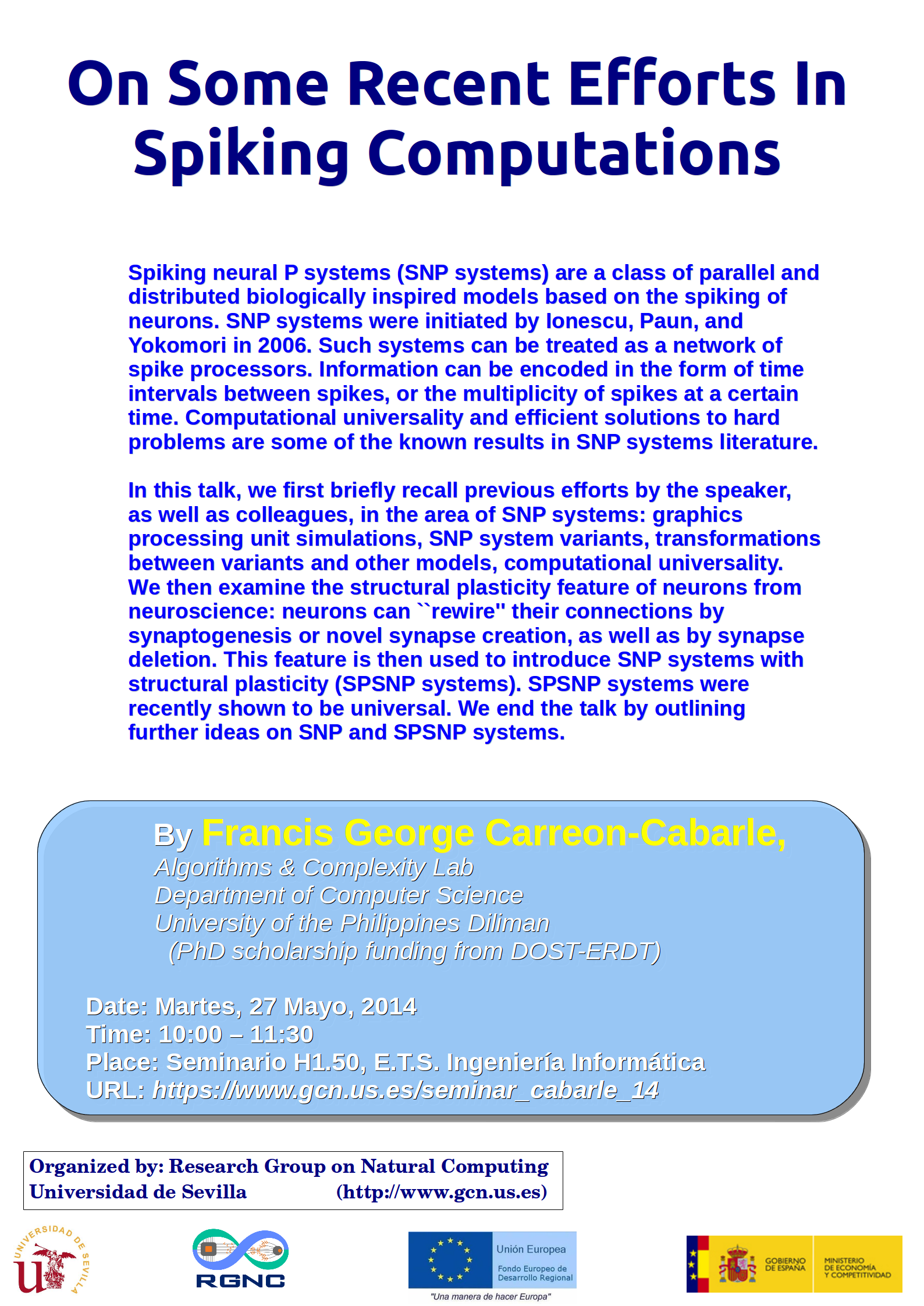On Some Recent Efforts In Spiking Computations
SEMINAR
Speaker: Francis G. Cabarle, Ph.D. student,
Membrane Computing Research Group, ACLAB,
University of the Philippines Diliman, Quezon City (Philippines)
Title: On Some Recent Efforts In Spiking Computations
Abstract: Spiking neural P systems (SNP systems) are a class of parallel and distributed biologically inspired models based on the spiking of neurons. SNP systems were initiated by Ionescu, Paun, and Yokomori in 2006. Such systems can be treated as a network of spike processors. Information can be encoded in the form of time intervals between spikes, or the multiplicity of spikes at a certain time. Computational universality and efficient solutions to hard problems are some of the known results in SNP systems literature.
In this talk, we first briefly recall previous efforts by the speaker, as well as colleagues, in the area of SNP systems: graphics processing unit simulations, SNP system variants, transformations between variants and other models, computational universality. We then examine the structural plasticity feature of neurons from neuroscience: neurons can ``rewire'' their connections by synaptogenesis or novel synapse creation, as well as by synapse deletion. This feature is then used to introduce SNP systems with structural plasticity (SPSNP systems). SPSNP systems were recently shown to be universal. We end the talk by outlining further ideas on SNP and SPSNP systems.
Information:
- Date: Tuesday, 27-05-2014
- Time: 10:00.
- Place: Seminar room H1.50 (First floor, Módulo H, Escuela Técnica Superior de Ingeniería Informática, Universidad de Sevilla)
- Language: English
Slides: Download here ![]()




